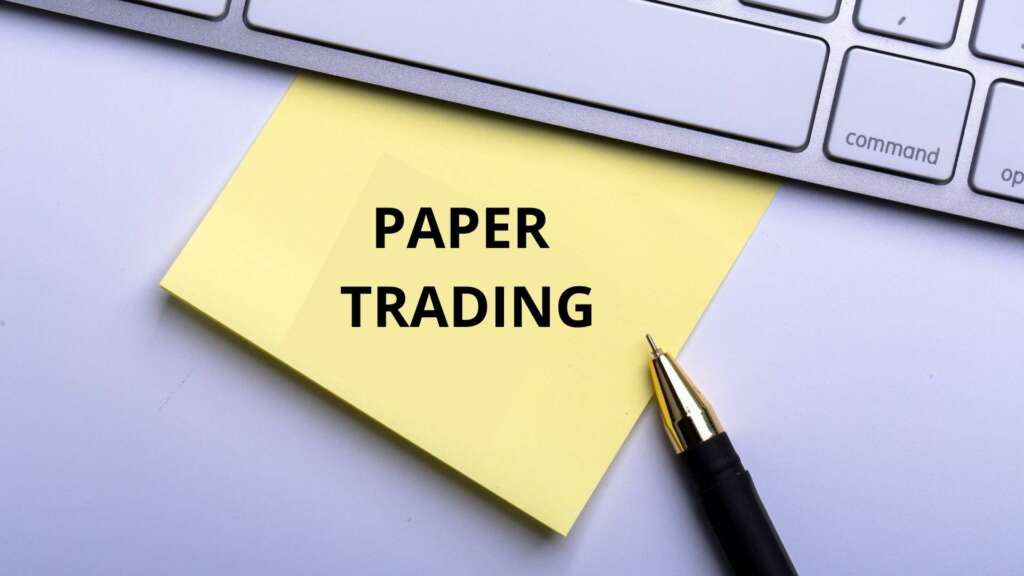
Paper trading in theory accounts (also known as “virtual” or “real” accounts) lets you trade shares, options, and future contracts with fake currency. This serves several purposes, primarily. The first obvious benefit of paper trading is it allows you to get acquainted with the different trading platforms available before needing to put money into actual funds. Most new investors are surprised by how user-friendly some of these platforms can be. Some of them even have “demo” mode – where you can make simulated trades with fake money until you feel ready to start investing real funds.
Of course, no trading platform would be complete without a good customer service department. Paper Traders should try to find the best platform for them, but it is always a good idea to take a little time to research the best companies. There are many to choose from, and some of the more popular companies include eToro, Trade Chat, and Trade Zee. These are just a few of the tradestation providers, but there are many others out there to consider as well.
With all of these choices, it can be quite confusing for new traders to make the right choice. There is another option, though, and that is to open demo accounts at some of the leading stock and option trading companies. Demo accounts give traders the chance to practice paper trading stocks and options without investing any real cash, and they are an excellent way for those who want to learn about the ins and outs of stock and option trading without putting themselves at any risk. Many investors also use demo accounts during the time that they are learning about the market, so using them to gain experience and a better grasp of how it works can benefit all involved.
When choosing a broker for paper trading, it is important to remember that the best brokers do not necessarily offer real services. Some of the top brokers, such as E-Trade, allow traders to set up fake accounts and practice paper trading strategies without having to invest real funds. This is a big advantage for people who are just learning about the market, as it allows them to learn how it works without risk. Once a trader becomes comfortable with the process, he or she may decide to open a real account. It is always important to choose an experienced broker, however, as even the best ones have been known to make mistakes.
The best way to test out paper trading strategies is to use simulated accounts. These are simply dummy accounts that offer free trades without the actual costs of actually investing. With these, traders can learn about the process without having to put any money down and to try out different strategies. They will also get to see what kind of results they could get if they did actually invest some of their own capital. These simulate accounts are particularly useful for new investors who do not have enough money to invest but who want to practice their skills.
One of the best ways for paper traders to practice their skills and sharpen their strategies is by going through a series of books or videos on paper trading. A typical video would include a day trader making a trade and explaining their strategy while showing their results. The books themselves usually cover a variety of topics including the terminology used, the tools necessary to understand the data they are using and how to read the charts. While these videos can be highly informative and show a lot about how paper trading works, it is always best to practice your strategy with a real live account.
Using fake money also allows traders to learn how they would manage if they were investing their own money. This is done by observing their behaviour in real-time and testing out their strategies. Since they cannot rely on real-time data to tell them how to interpret their strategies, they have to develop their own mental algorithms instead. Many of the strategies developed by day traders are later proven to be very effective. However, most of their strategies were not implemented in paper trading because the publishers did not allow them to be. It was not until more traders took up paper trading that publishers realized that if they allowed real-time data to influence their strategies, then they could possibly ruin their chances of success.
As soon as possible, newbies are encouraged to use fake money in paper trading until they get comfortable with their skills and start implementing their strategies in real-time. Some traders like to test their strategies using practice accounts so that they can perfect their techniques and hopefully make the right moves in the future. They are also able to develop a sense of independence and pride in their work. Once traders feel more confident, they can open up real-time accounts and continue to practice their strategies, following the same rules that they follow in paper trading, following the same technical signals, following the same market conditions, and getting the same results.


